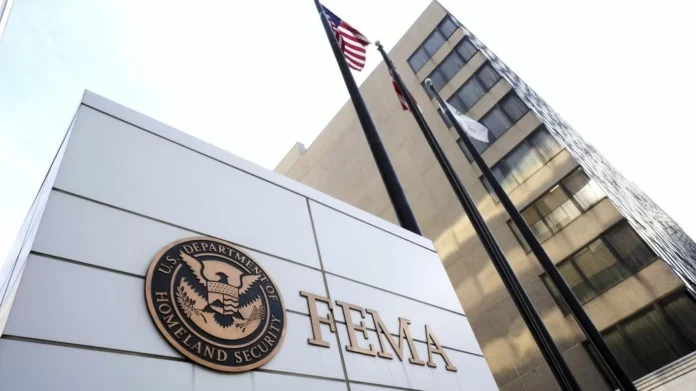A coalition of 20 states has taken a stand against the Trump administration’s decision to terminate a vital grant program that aims to strengthen infrastructure in the face of natural disasters. On Wednesday, a lawsuit was filed in federal court in Boston, challenging the Federal Emergency Management Agency (FEMA) for its unlawful elimination of the Building Resilient Infrastructures and Communities (BRIC) program.
This program, which was launched in 2018, aimed to provide critical funding for projects that would enhance the resilience of communities against natural disasters. It was a proactive approach to protecting our infrastructure and saving lives, rather than simply reacting after the damage has been done. However, the Trump administration’s sudden decision to shut down the program has left many baffled and concerned.
The BRIC program was created after the devastating aftermath of Hurricane Harvey, which caused billions of dollars in damage and claimed numerous lives. The program allocated $16 billion in grants to help states and communities prepare for future disasters by investing in resilient infrastructure projects. This included measures such as building flood walls and levees, improving drainage systems, and implementing green infrastructure to mitigate the effects of natural disasters.
The decision to terminate the program was made without any prior warning or consultation with the states involved. This has caused an uproar among the states that were actively utilizing the grants to safeguard their communities. The coalition of 20 states, led by Massachusetts Attorney General Maura Healey, has accused FEMA of violating the Administrative Procedure Act by not providing a proper explanation for the sudden termination of the program.
In a joint statement, the coalition stated, “FEMA’s failure to provide a reasoned explanation for its decision to eliminate the BRIC program is a clear violation of the law. This program was a crucial tool for our states to prepare and protect our communities from the growing threat of natural disasters.”
The termination of the BRIC program has not only caused anger and concern among the states involved but also among environmental groups and experts. They argue that this decision goes against the urgent need for proactive measures to combat the worsening effects of climate change. With the frequency and severity of natural disasters on the rise, investing in resilient infrastructure is critical for the safety and well-being of our communities.
Many are also questioning the timing of this decision, as it comes in the midst of a global pandemic. The COVID-19 crisis has already strained state budgets, and the sudden loss of funding for vital infrastructure projects will only add to their financial burden. This will not only hinder the progress of these projects but also put the safety of communities at risk.
The coalition of 20 states is seeking an injunction to stop the termination of the BRIC program and allow states to continue utilizing the grants in progress. They believe that this program is essential for the safety and resilience of their communities and that FEMA’s decision to eliminate it was made without proper consideration.
It is heartening to see these states banding together to protect their communities and hold the government accountable for its actions. The BRIC program was a step in the right direction, and its termination is a devastating blow to the progress made in building resilient infrastructure. We can only hope that the lawsuit will result in the reinstatement of this vital program, as it is crucial for the safety and well-being of our communities. It is time for the government to prioritize the protection of our infrastructure and take proactive measures to prepare for the increasing threat of natural disasters.

